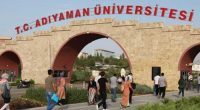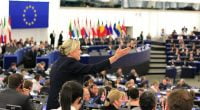Why Gulen Should Not Be Extradited

Date posted: October 18, 2016
Roman Nikolaev
It was the Gulen-inspired school that made me realize that many of world’s problems stem from lack of dialogue and from the desire to hide behind the veil of nationality, religion, and ethnicity.
“Whichever terrorist you asked from us, we have delivered to you. (…) We hope that you will give us that person who happens to be on our terror list.” This is how Turkey’s president, Recep Tayyip Erdogan, addressed the government of the United States a day after the collapse of the coup in Turkey. Since then, he has pointed out the importance of reciprocity in every major interview he has given. The timing is crucial. Turkey is expecting US officials to produce their first commentary on the possible extradition of Fethullah Gulen – a Muslim cleric who, by Erdogan’s thinking, was the mastermind of the coup. Despite the fact that Turkey has not delivered any evidence of Gulen’s involvement in the coup, President Erdogan has hardly toned down his rhetoric against the cleric. With no known evidence and a justice system that has put dozens of journalists and activists behind bars, if Gulen is extradited, there are grounds for doubt in the fairness of any future trial. But killing ideologies is about more than just removing its proponents. More importantly, the ideas Gulen has developed, which form a blueprint for peace and tolerance, may be in jeopardy.
Despite lack of evidence, Turkey has already detained more than 70,000 people and jailed 32,000 of them. All these crackdown victims allegedly share links either to Gulen or the Gulen-affiliated movement. A close and entirely apolitical friend of mine by the name of Selman Gulen, a movie director whom I have known for 13 years, is in Silivri prison awaiting trial. His wait may take years. The reason for his incarceration was simple – he is a nephew of Fethullah Gulen. I learned about the arrest from the news. All Turkish media described the incident in a similar fashion: he was captured by the police in a “luxury Mercedes brand automobile” on the premises of a “luxury residence complex.” To put it simply, the media portrayed the arrest of this person as that of someone wealthy in order to create hate in the eyes of the readers towards Gulen and everything affiliated with him. The media presented the simplest possible portrait, which is in line with Erdogan’s rhetoric and is easily digestible by the readers. But the vehicle Selman was capture in is in fact a used C class Mercedes – one of the cheapest of the brand. And it belongs not to Selman but to his close relative, who is a businessman. I can attest to this because I toured Istanbul with him in this car in December 2015. The “luxury apartment complex” in which he was apprehended in is not his house either. Once the purge started, the police first targeted the relatives of the exiled cleric. In an effort to save himself from the encroaching security forces, Selman had to live at his friend’s house for some time. Everyone who knows Selman Gulen can attest to his humility, kindness and apolitical nature. This is an example of how the system that Erdogan has created endangers the rule of law and democracy in Turkey by detaining relatives of possible suspects. Selman’s case is not unique – notorious cases include the detainment of a father of a famous Turkish soccer player Hakan Sukur, who is currently in California, and the wife of the opposition journalist Bulent Korucu. A legitimately elected 21st century government engaging in blackmail – how is that for a democracy?
Inside Selman’s car, the police found a book by Fethullah Gulen. Currently, this is sufficient evidence for detainment and arrest. What haunts Gulen’s writings that would trigger the government to conduct home raids in search of them – something residents on the ground are consistently reporting? Gulen is clear on the question of a coup, writing in 2004 that the Quran equates struggling “to tear down the state or the legitimate administration” to a murder in its degree of sinfulness.
Gulen’s ideas of peace and tolerance have developed a worldwide network of educational institutions and charities. His followers go to turbulent areas of the world – places like Somalia and the Democratic Republic of the Congo — not for the riches of the world, but for the idea of peace and humanity. They open schools in order to bring up future professionals who set their countries on the straight and narrow. I am a graduate of two of these schools, both of which have been closed down by the government. Beside high-quality education they offered, these schools awakened in me and thousands of others the concept of global citizenship. It was the Gulen-inspired school that made me realize that many of world’s problems stem from lack of dialogue and from the desire to hide behind the veil of nationality, religion, ethnicity. One of the main reasons for the existence of these schools all around the world is to overcome the barrier of prejudice that our identities create.
The crackdown has turned against the Gulen-inspired schools, too. At the request of Erdogan, some states either closed down the schools or sacked Gulen-affiliated teachers and personnel. They have succumbed to the geopolitical game where influence matters more than righteousness: they have preferred a short-term gain by satisfying Erdogan to the chance of bringing up new, morality-driven, educated politically conscious citizens in the long run. Other states, such as Indonesia and Kyrgyzstan, have resisted – they have seen real value in the idea of dialogue and tolerance which stem from Gulen’s philosophy.
To extradite Gulen would not only imply a high chance of an unfair trial, but would also sound the death knell of a blueprint for global peace. Gulen’s ideas have all the potential for a global approach to peace-building. John L. Esposito, a professor at Georgetown University and a highly respected expert on Islam, called Gulen’s initiatives “extraordinarily unique”, and suggested it would be “wise” for other Muslim movements to emulate them. Between Brexit and the growing tide of nationalisms all over the world, one can argue that the nation-state is making a triumphant, if inglorious, return. History, however, has exposed all kinds of problems nationalism and rivalry between nation-states have brought to humanity. Instead, Gulen’s philosophy argues for a more tolerant and globalized world – one where we can understand each other irrespective of states, nations and other markers of imposed identity. It is perhaps one of the few chances we have for a peaceful coexistence.
Roman Nikolaev holds a doctorate in political science from the University of Arizona, where he is currently an adjunct faculty member. He completed his dissertation in 2016, writing on Islamism in democracies. Originally from Russia, he holds two undergraduate degrees from Fatih University in Istanbul.
Source: Middle East Online , October 18, 2016
Tags: Fethullah Gulen | Gulen extradition | Military coups in Turkey | Persecution of Hizmet by Erdogan | Turkey |
























